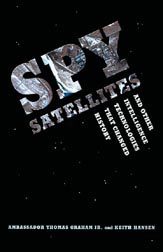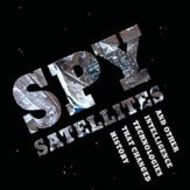 |
Much has been said and written about the failure of U.S. intelligence to prevent the terrorist attacks on September 11, 2001, and its overestimation of Iraq’s weapons of mass destruction under Saddam Hussein. This book focuses instead on the central role that intelligence-collection systems play in promoting arms control and disarmament. Ambassador Thomas Graham Jr. and Keith Hansen bring more than fifty combined years of experience to this discussion of the capabilities of technical systems, which are primarily based in space. Their history of the rapid advancement of surveillance technology is a window into a dramatic reconceptualization of Cold War strategies and policy planning. Graham and Hansen focus on the intelligence successes against Soviet strategic nuclear forces and the quality of the intelligence that has made possible accurate assessments of WMD programs in North Korea, Iran, and Libya. Their important insights shed a much-needed light on the process of verifying how the world harnesses the proliferation of nuclear arms and the continual drive for advancements in technology. |
“Based on three decades of their involvement in the front lines of arms control negotiations, Graham and Hansen are superbly qualified to analyze the critical role of satellites in space and other national technical means in monitoring compliance with arms control treaties. They do that very well in this short and authoritative book that takes the reader on an informative tour of the broad repertoire of treaties that were designed to meet requirements for effective verification and that helped stabilize the U.S.-Soviet confrontation during the Cold War.” – Sidney Drell, Hoover Institution and Stanford Linear Accelerator Center
“I could not imagine two authors better experienced to tell this important story, and to continue to tell it in more detail as declassification permits. Likewise, it is hard to come up with a better example of how good intelligence can generate the transparency which defined U.S. and Soviet stability in the latter part of the twentieth century.” – William O. Studeman
“Authors Graham and Hansen have done a superior job of explaining the contributions of intelligence to strategic arms control, the downfall of the Soviet Union, and the continuing contribution to our national security. The book is a tribute to those men and women who toiled long and hard to develop sophisticated collection systems and, likewise, those analysts who turned the collected data into useable intelligence.” – Evan Hineman
Ambassador Thomas Graham, Jr., a senior U.S. diplomat, was involved in the negotiation of every major international arms control and nonproliferation agreement of the past 30 years. As President Clinton’s Special Representative for Arms Control, Non-proliferation and Disarmament, he led the successful U.S. government effort to indefinitely extend the Nuclear Non-Proliferation Treaty. He is currently the Chairman of the Cypress Fund for Peace and Security. Keith Hansen is consulting professor in international relations at Stanford University and has spent thirty-five years in US national security deliberations and strategic nuclear arms control negotiations.
» Receive a signed copy with your contribution of $100 or more to the Global Security Institute.
Published by University of Washington Press, P.O. Box 50096; Seattle, WA 98145-5096. ISBN:
0-295-98686-7; 9780295986869. Price: $14.95






